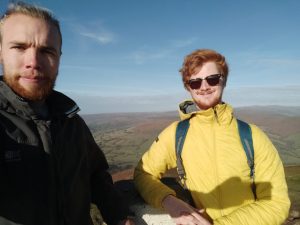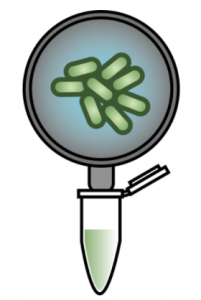By Matthew Tarnowski and Harry Thompson
In recent years, there has been an increase in the number of people enjoying the natural environment in areas local to them, including taking part in wild swimming. However, given that in 2020 the UK was ranked last in Europe for bathing water quality, and with reports of people getting sick after swimming, is this currently a safe pastime to enjoy?

PhD candidates Matthew Tarnowski and Harry Thompson are embarking on a short project attempting to develop a high sensitivity biosensor to identify individual species of bacteria in river water samples. This biosensor will be built using the SHERLOCK CRISPR-based technology, which has already been applied to a variety of tasks ranging from diagnosing ZIKA virus infection in patient samples to fish species identification. As avid wild swimmers, Harry and Matt are hopeful that this could be a useful tool in clarifying the safety of water to swim in. Ideally, the biosensor would enable the rapid identification of microbial species in rivers and other waterways used for swimming/recreation.
Matt said: “Water is like a glue that binds ecosystems: hydrating and connecting them through the microbial life it sustains. We seek to detect microorganisms which indicate healthy and unhealthy water.”
Harry added: “In our preliminary studies, we hope to generate initial results which show that the biosensor can reliably detect a single species in a mixture of microorganisms in the lab. We will also test samples from popular swimming and spring water locations and no doubt do a bit of wild swimming too.”

The underpinning technological basis for this project is the SHERLOCK platform (specific high-sensitivity enzymatic reporter unlocking). This technology allows rapid (around 1h) and reliable detection of nucleic acids at concentrations as low as 1 molecule DNA per millilitre (zeptomolar).
This project involves a novel application of SHERLOCK: biosensing of microbes in water. The SHERLOCK technology has been previously demonstrated to work also as a lateral flow (LTF) based assay and developing the biosensor for LTF use would form the basis of any follow-on work.
Such a device could be used for simple, rapid assessment of swimming water by anyone, anywhere.
Matthew Tarnowski and Harry Thompson received PhD funding from the EPSRC/BBSRC Centre for Doctoral Training in Synthetic Biology (SynBio CDT), grant EP/L016494/1 and the University of Bristol. Funding for this research project is provided by the SynBio CDT Innovation Award.

